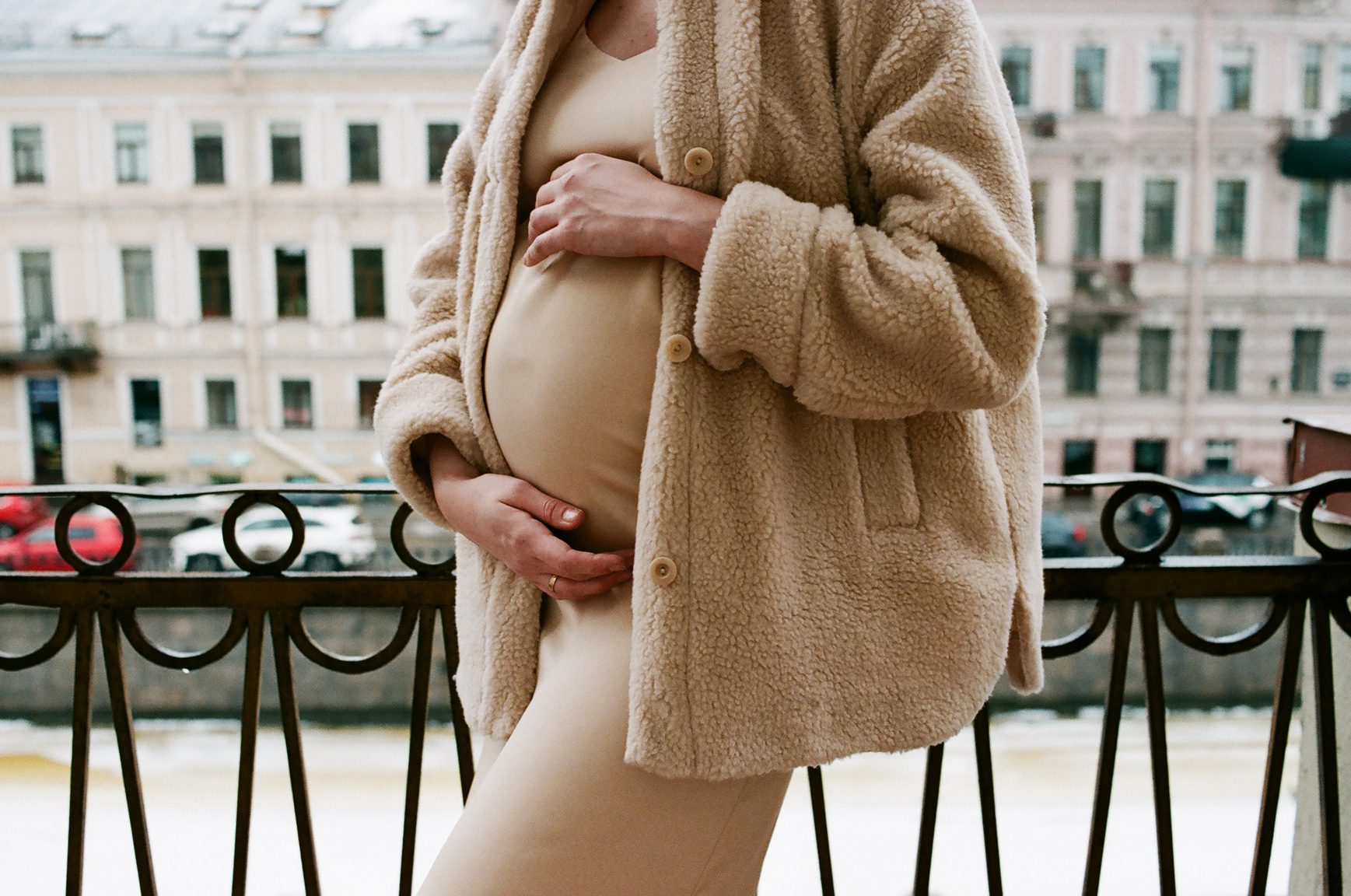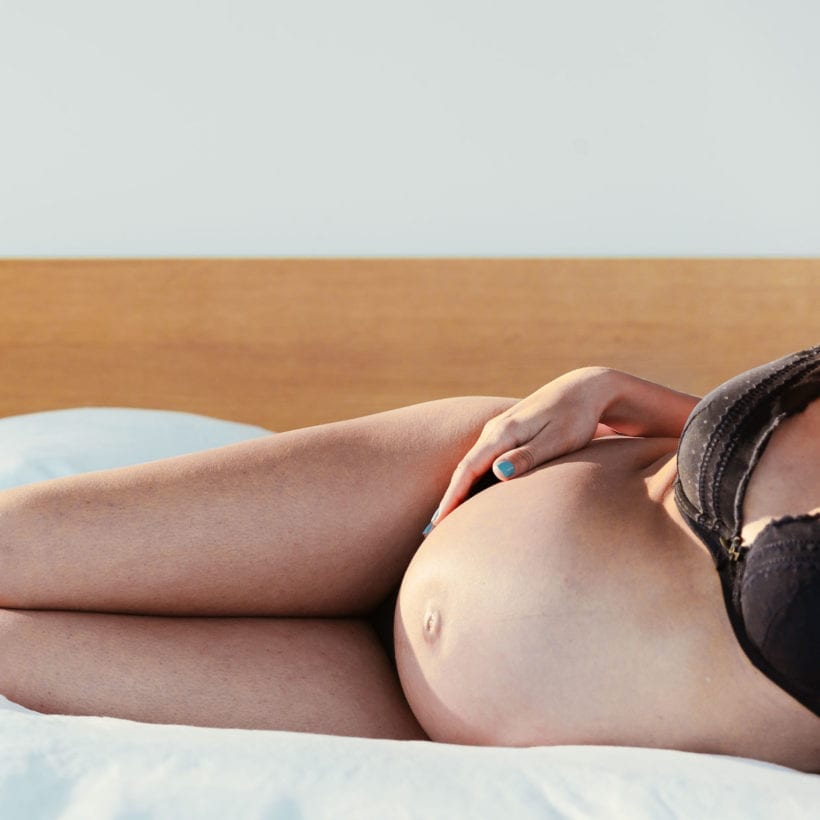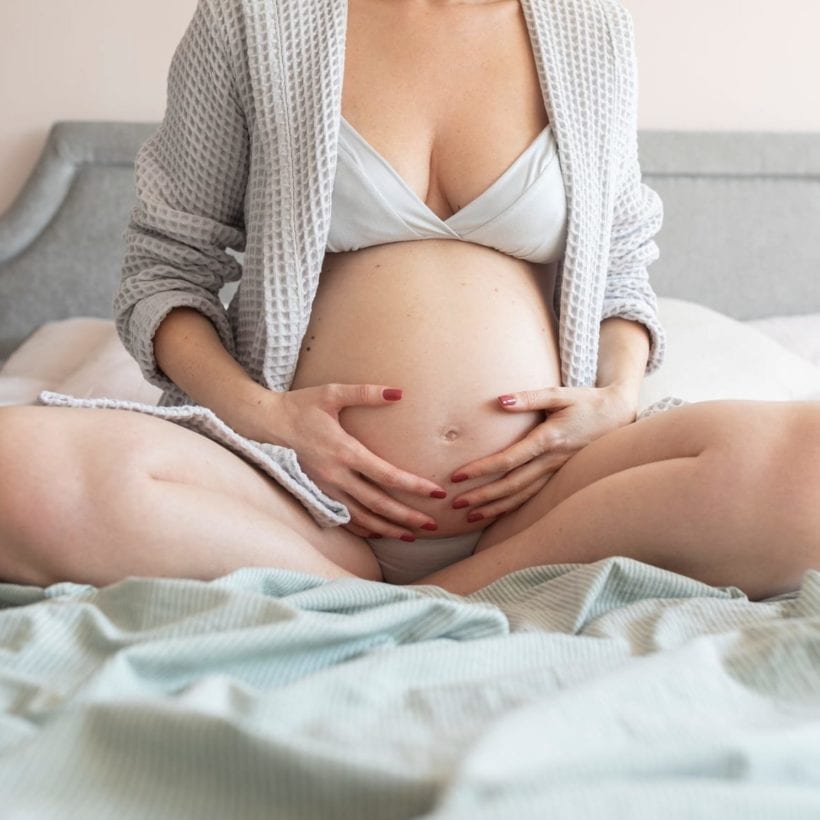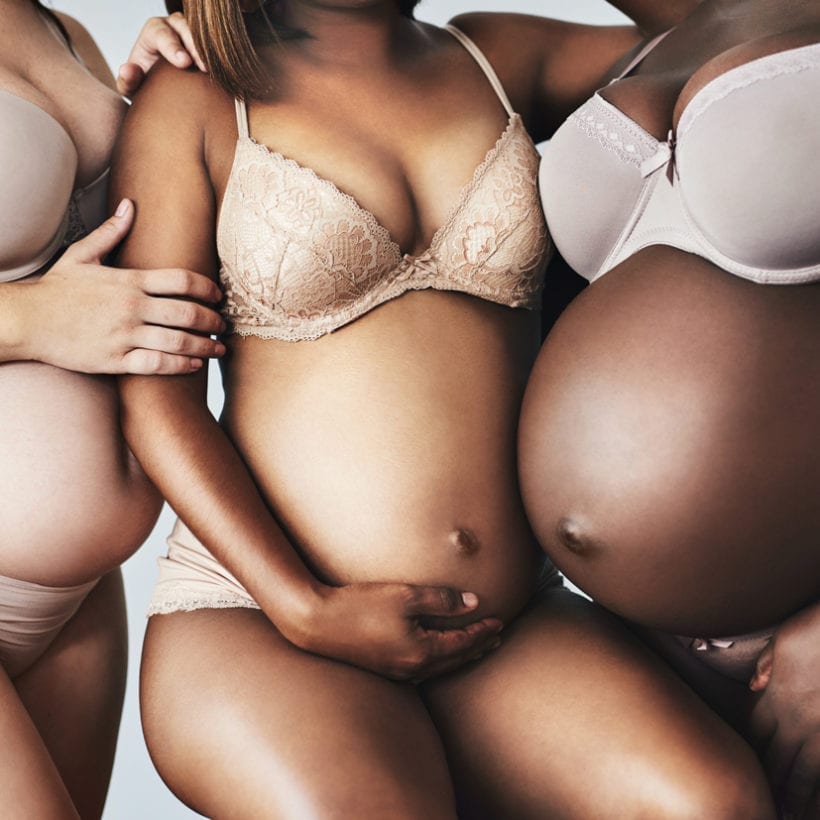In August, the Centers for Disease Control and Prevention released a statement: after months of pregnant women falling into a vaccine gray area, the health organization officially recommended pregnant people get the vaccine. “The vaccines are safe and effective, and it has never been more urgent to increase vaccinations as we face the highly transmissible Delta variant and see severe outcomes from COVID-19 among unvaccinated pregnant people,” said CDC Director Dr. Rochelle Walensky.
In the U.S., just over half of the population is fully vaccinated — and from the beginning, the rollout has been hindered by misinformation and mistrust. “There are many reasons patients may not trust the vaccine and the medical system, including historic and current injustices on Black and brown people’s bodies,” says Dr. Stephanie Chen, an OB/GYN in Pennsylvania and fellow with Physicians for Reproductive Health.
But while that’s dangerous for everyone (several major healthcare organizations have even pushed for vaccine mandates to keep us all safe) the stakes are particularly high for pregnant people: “We know that symptomatic pregnant patients are more likely to require mechanical ventilation, be admitted to an ICU, and more likely to die from COVID-19,” says Dr. Chen. Still, the vast majority of pregnant people in the U.S. remain unvaccinated — 77 percent, according to recent data — a fact that is alarming experts.
So, what do we know about the safety of the vaccine for pregnant people? We asked doctors for everything you need to know.
The Vaccine Trials

Historically, pregnant people have been excluded from vaccine trials. And the COVID-19 vaccine trials were no different (despite recommendations of “multiple medical societies including the American College of Obstetricians and Gynecologists,” that they should be included, adds Dr. Chen.) “This was not due to any specific concern regarding any of the COVID-19 vaccines in this patient population, but rather due to vaccine trial protocols,” she says.
The Data
Luckily, we do have a lot of data about the safety of the COVID-19 vaccine in pregnant people.
First, there are animal studies. “All three vaccines (Pfizer, Moderna, and Johnson & Johnson) have been studied in animal models and have not demonstrated any adverse effects on fertility, fetal development, or postnatal development,” says Dr. Chen.
But more importantly, “after following hundreds of thousands of pregnant women in multiple countries post-vaccination, there has been no increased risk of miscarriage, infertility, or adverse pregnancy outcomes,” says Dr. Kathleen Jordan, senior vice president of medical affairs at Tia, a women’s health clinic.
Eight months after the first doses were administered, there is a ton of real-world data from pregnant women who opted to get the vaccine. “Manufacturers and national registries have responded with robust large-scale tracking databases for safety and efficacy in hundreds of thousands of pregnant women,” says Dr. Jordan. “These databases have followed the moms’ outcomes as well as the babies’ and the results consistently demonstrated efficacy and safety for fertile, pregnant and lactating women.”
A long list of medical experts — including The American College of Obstetrics and Gynecology, The American Society of Reproductive Medicine and The Society of Maternal-Fetal Medicine — have recommended the vaccine for pregnant people.
The Method
So, how does the vaccine work? “The COVID-19 vaccines have proteins that, when injected, trigger you to make your own native antibodies that fight the virus,” explains Dr. Jordan. So, in other words, there’s no live virus being injected into you. In cases of “breakthrough” infections, “the antibodies fight off the infection faster than if not vaccinated, therefore, decreasing the chance the virus can progress to serious illness or death,” she says.
For pregnant people, those antibodies are also passed on to their baby (in utero via the placenta and after delivery via breast milk).

You can reap the benefits of the vaccine during any trimester. “At the beginning, we were reluctant to use it in the first trimester,” says Dr. Daniel Roshan, a specialist in maternal-fetal medicine. This was largely because one side effect of the vaccine is a fever, which, while pretty innocuous for most of us, can be dangerous early in pregnancy, he explains.
Thanks to the combination of the growing pile of safety data as well as documented negative outcomes of unvaccinated pregnant people who have gotten COVID, most doctors now recommend getting the vaccine as soon as possible. “Mom’s response to the vaccine and protective antibody levels occur with vaccination in any trimester,” says Dr. Jordan. “And with hundreds of thousands of vaccinated women having delivered babies, there has been no increased incidence of adverse outcomes in the babies regardless of the trimester the vaccine was received.”
The Risks
Eight months into the vaccine rollout, with hundreds of thousands of pregnant women who have gotten vaccinated and given birth, there is no evidence that the vaccine carries any risks to pregnancy or fertility.
There are, however, major risks if you get sick with COVID-19 while pregnant without having been vaccinated. “There is a significantly increased risk to pregnant women in comparison to nonpregnant women of the same age,” says Dr. Jordan.
If you’re otherwise healthy, your overall risk of serious illness is still low, she says but “we know that pregnancy makes you more likely to progress to severe disease, need hospitalization and the ICU, and that dozens of new mothers have died from COVID-19 in the U.S.” This is why healthcare providers are so serious about masking and social distancing in addition to getting vaccinated. And it’s not just about your health: “COVID-19 is associated with a higher risk of premature delivery, which puts the baby at risk for many health issues,” Dr. Jordan says. “Vaccines are a way to avoid or minimize these risks from COVID-19 to mom and baby.”
The vaccine is even more important for people with high-risk pregnancies (a term that applies to conditions like diabetes, obesity, or high blood pressure during pregnancy). In the general population, people with high-risk health conditions are also high-risk COVID patients, explains Dr. Roshan. “So pregnant patients who have high-risk conditions are even more likely to end up in the hospital,” he says. “At this time the vaccine is the best solution to prevent dying from COVID and prevent hospitalizations from COVID.”







